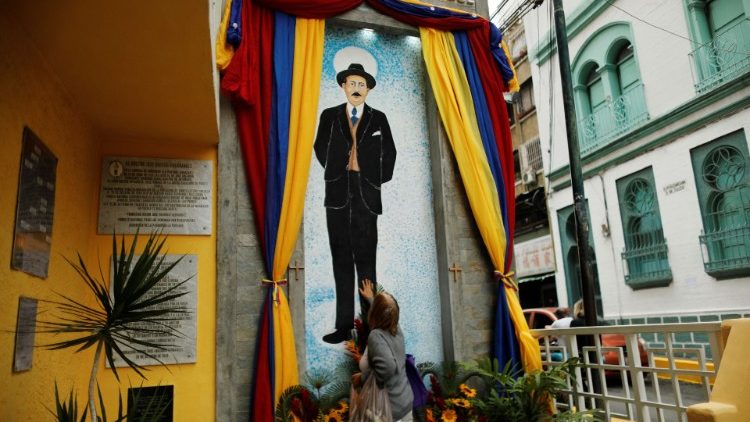Robaird O’Cearbhaill
Hong Kong Correspondent
In his Twiy.com biography, José Gregorio Hernandez – future Saint of Venezuela – was hailed not just as a pious but generous doctor, innovative, creative professor of medicine. “In the course of life of a doctor, scientist, religious figure came beyond the framework of time,” his biography declared.
“The contemporary Venezuelans valued Jose Gregorio Hernandez not only for his contribution to medicine that started to flourish in his times, but most of all for his benevolence, sincerity and openness of his soul,” the biography asserted.
According to another Jose Gregorio Hernandez profile by Amy McKeever, in the National Geographic magazine about the ‘doctor of the poor’, “he has become an iconic figure in the overwhelmingly Catholic country, where devotees pray to him for healing. His tomb became a pilgrimage site and soon began to spawn folk stories about miracle healings.” This since his death in 1919. He became officially Blessed in 2021. Hernandez is the only beatified Venezuelan layman.
Why Hernandez became the so-called ‘doctor of the poor’ is unclear, but the title may reasonably be derived from his generosity. As his biography related: “He rushed to help at the first call and never asked any questions whether his services of the doctor would be paid for or not” and it states that patients were generally the most impoverished.
According to his biography, many of his fellow countrymen accept he will be a saint. ”People believe that after his premature death in 1919 when he was only 56, it was only due to his invisible help many miraculous healings of the sick occurred, and as a rule, of people from the poorest families. People call Jose Gregorio a ‘doctor of the poor.’
Hernandez’s reputation in his country came from being a “curious student and a young scientist of the 19th century, [and an] unselfish doctor and wise academician of medicine of the 20th century.”
He became a leading academician in Venezuela, through rigorous medical training with scholarships at the prestigious Institute Pasteur. Hernandez’s biography commented that: “It is not by chance that later he was called a ‘Venezuelan Pasteur’: it was he who gave an impetus to development of medical science in Venezuela, first of all in such little-studied (at that time) field of mycobacteriology.
Despite his notable breakthroughs and distinction in those specialist fields, rounding up his life’s successes is perhaps being ‘the Saint of Venezuela in the 21st century’.
His reputation for piety was already known in his lifetime. Hernandez went to Mass daily.
“Hernandez was a very pious person to such an extent that twice during his stay in Europe he tried to become a monk in monasteries with very severe regulations.” But weak health did not allow the dream of Jose Gregorio to come true.
Hernandez’s early death in Caracas was suspicious and unlikely. He was standing at a mid-road tram stop and did not notice a car approaching. As his biography noted: “the absurd, unexpected, treacherous death seemed to be waiting for Jose Gregorio. Everything happened instantaneously: the car appeared as if from nowhere, Jose Gregorio was thrown away, lost his balance and falling down he struck his head against the stone curb.”
And his passing, according to his biography, was considered by some to be legendary.
“Legend has it that Hernández offered up his life to God in exchange for the end of World War I. He was hit by a car and died on June 29, 1919, the day after the Treaty of Versailles was signed,” ending the war.
(Photo by Vatican News)


 Follow
Follow


